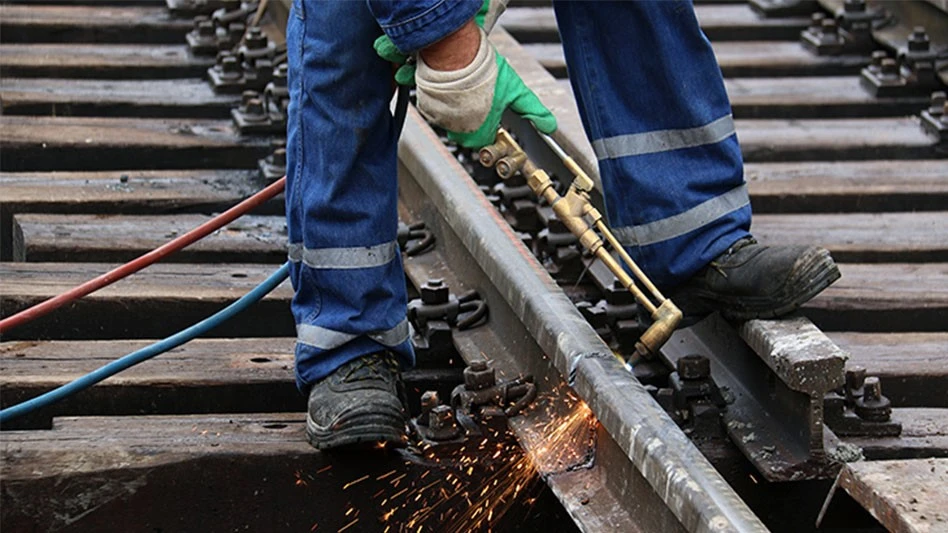
© Branko - stock.adobe.com
President Joe Biden has signed into law a bill (H.J. Res. 100) that blocks rail workers from going on strike, preventing workers from walking off the job ahead of the holiday season. The resolution, with respect to the unresolved disputes between certain railroads represented by the National Carriers’ Conference Committee of the National Railway Labor Conference and some of their employees, was signed Dec. 2.
“The bill I’m about to sign ends a difficult rail dispute and helps our nation avoid what, without a doubt, would have been an economic catastrophe at a very bad time in the calendar,” Biden said Dec. 2 in his remarks on the resolution. “Our nation’s rail system is literally the backbone of our supply chain, as you all well know. And so much of what we rely on is delivered on our rail, from clean water to food and gas and every other good. A rail shutdown would have devastated our economy.”
House and Senate lawmakers passed these measures Nov. 30 and Dec. 1, respectively.
H.J. Res. 100 imposes a compromise labor agreement that the Biden administration had brokered in September that was voted down by four of the unions representing more than 100,000 employees at large freight rail carriers.
U.S. railroad unions secured a tentative labor agreement in September to avert a rail shutdown, but four unions rejected that agreement in October. The unions that rejected the September labor agreement want the agreement to include more paid sick leave for workers. H.J. Res. 100 does not ensure the desired paid sick leave.
The Association of American Railroads (AAR) President and CEO Ian Jefferies says none of the parties involved in these negotiations achieved everything they wanted with the final agreement.
“The product of these agreements is a compromise by nature, but the result is one of substantial gains for rail employees,” Jefferies says. “More broadly, all rail stakeholders and the economy writ large now have certainty about the path forward.”
AAR says the average railroad worker will receive a $16,000 immediate payout and increase wages and benefits to $160,000 per year as a result of the agreement.
Other industry associations, including those in the recycling industry, have expressed support of H.J. Res. 100.
Robin Wiener, president of the Washington-based Institute of Scrap Recycling Industries (ISRI), says ISRI “is thrilled” that lawmakers and the president have taken action to avert a railroad labor shutdown.
She says, “Rail service is vital to receiving and delivering recycled materials used in manufacturing, including the 70 percent of all U.S. produced steel that is made from recycled material. Overall, nearly 40 percent of recycled materials—comprised of steel, aluminum, paper, plastics, copper, rubber and glass—travel by rail to fortify U.S. supply chains and infrastructure. The railways are key to delivering recycled materials to manufacturers to produce everyday items and essential infrastructure.”
Arlington, Virginia-based National Waste & Recycling Association (NWRA) also has expressed support for H.J. Res. 100. NWRA President and CEO Darrell Smith says, "We thank President Biden for signing this legislation into law so quickly. A rail strike would be economically devastating to America and could also lead to a public health crisis if waste and recyclables are transported by rail to recycling facilities and landfills are unable to be moved."
NWRA adds that some of its member companies from the Northeast and Northwest have noticed that rail service disruptions have had a severe impact on their businesses this year.
Latest from Construction & Demolition Recycling
- Ferrous traders see price stability continuing
- LRS diverts 330,000 tons of recyclable material in 2024
- Elevating industry standards
- Takeuchi adds dealer locations in central US
- Tariffs target steel exporters Brazil, Canada and South Korea
- Toyota-Tsusho completes acquisition of Radius Recycling
- Motion opens new branch in Quebec
- Terex M515 trommel designed for rip rap production





